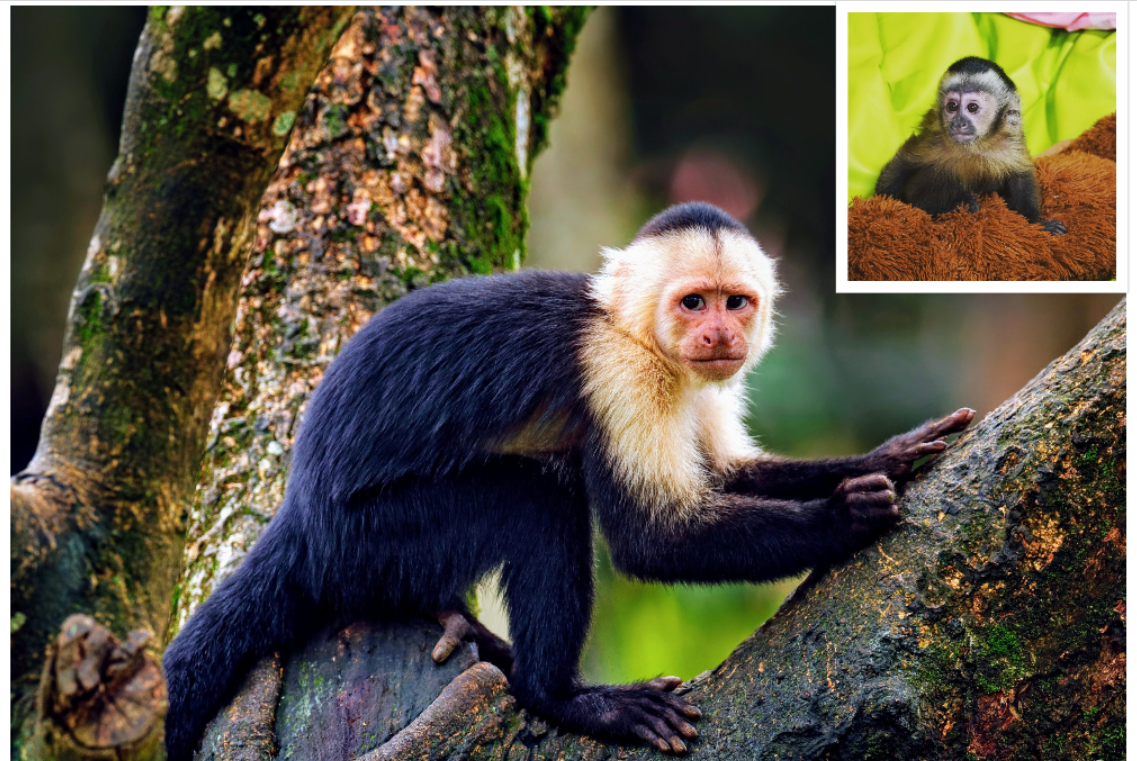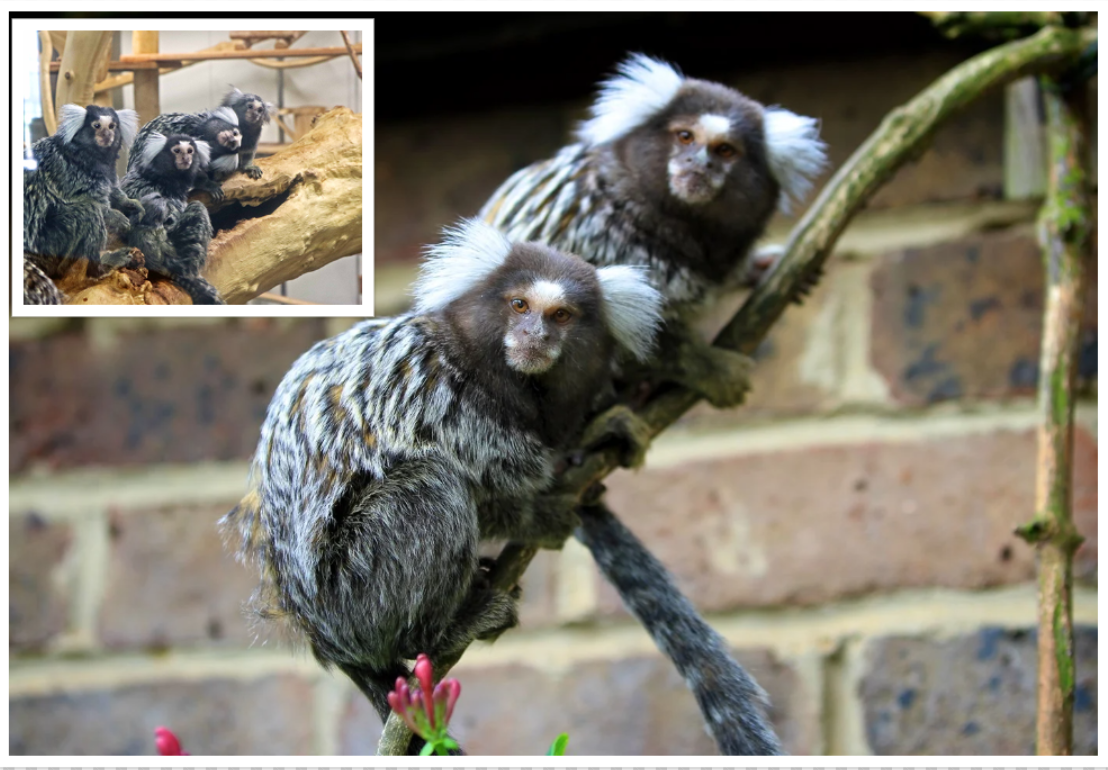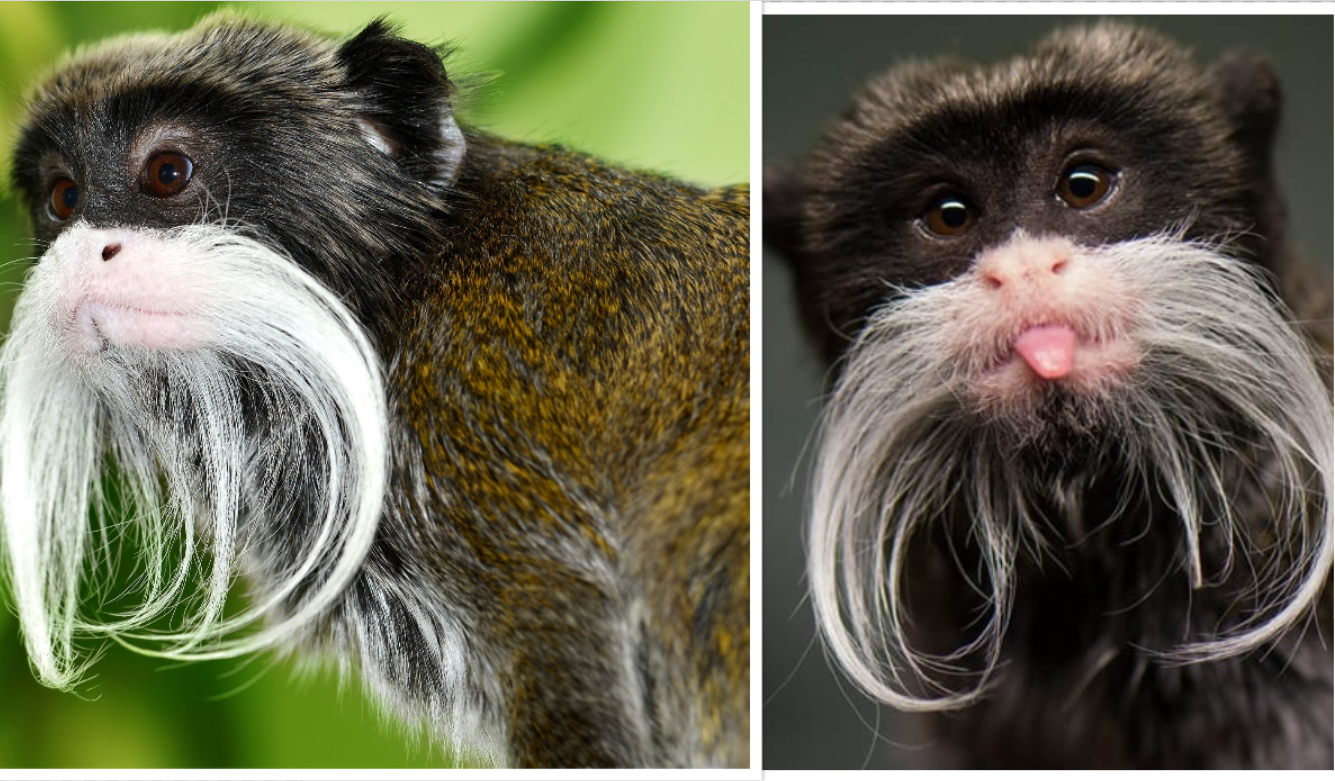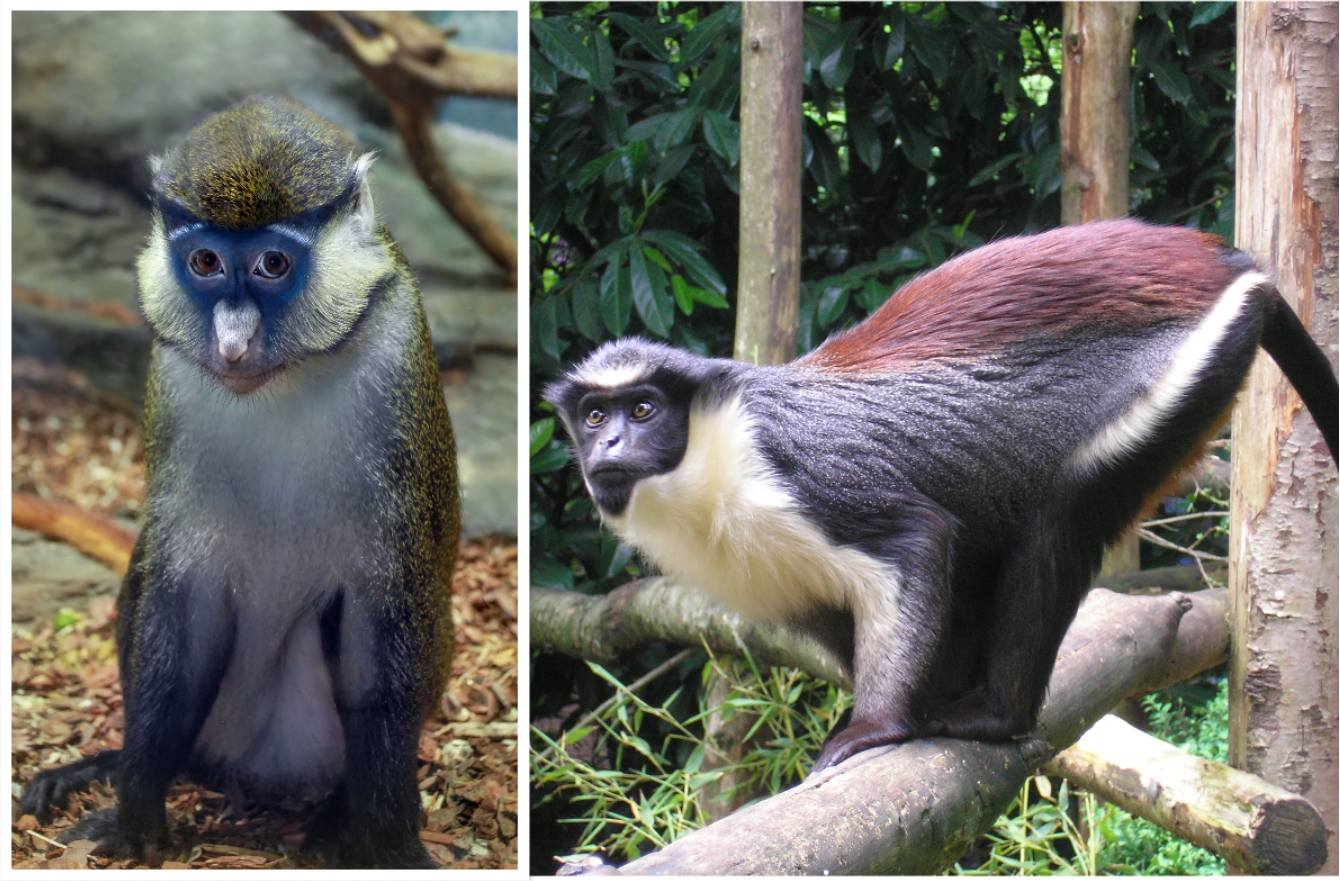Texas is one of the few states that allow residents to keep monkeys as pets. Currently, The Lone Star State has no laws regulating the adoption of monkeys. However, some monkey species are restricted from being kept as pets. Some examples are Baboons, Drills, and Mandrills. These species of monkeys are generally considered "dangerous wild animals," and keeping them as pets is heavily regulated and not recommended in Texas and other U.S. States.
The species of monkeys on this list are not classified as such and keeping them as pets is virtually unregulated in the state of Texas. Moreover, they are the most popular types of monkeys commonly kept as pets in the state of Texas.
1. Capuchin Monkeys
Capuchins are one of the primates that make the best pet monkeys. They are diurnal and deemed the most intelligent of New World monkeys. Capuchin Monkeys are entirely legal to keep as pets in Texas. They typically weigh from 3 to 9 pounds and have a lifespan of 15 to 25 years.
Acquiring a Capuchin Monkey in the state of Texas will cost you between $5,000 and $7,000. If you are considering a pet Capuchin monkey, you should note that Capuchins are social animals and therefore need the company of their own species. In addition, they don't do well when kept in small enclosures. In other words, pet Capuchins need lots of space for exercise in order to thrive.
2. Marmosets
You can keep a Marmoset monkey without a license or permit in the state of Texas. Marmosets are one of the most popular types of monkeys commonly kept as pets. There are more than twenty species of Marmosets, including the Common marmoset, Pygmy marmoset, Silvery marmoset, Black-tufted marmoset, White-headed marmoset, Buffy-tufted marmoset, Buffy-headed marmoset, Black-tailed marmoset, Roosmalens' dwarf marmoset, Wied's marmoset, White marmoset, Gold-and-white marmoset, Santarem marmoset, Marca's marmoset, Emilia's marmoset, Maués marmoset, Rio Acarí marmoset, Satéré marmoset, Rondon's marmoset, Black-headed marmoset, Hershkovitz's marmoset, and Manicore marmoset.
The Common marmoset is the most popular marmoset species commonly kept as a pet in Texas. This species of Marmoset stands between 16 and 20 centimeters tall and has an average lifespan of 16 years in human care. Generally, it will cost you between $1,500 and $4,000 to buy a pet Marmoset in Texas.
3. Tamarin Monkeys
It is legal to keep a Tamarin monkey as a pet in the state of Texas. By all accounts, these squirrel-sized New World monkeys make good pets. Popular species of Tamarins include the Emperor tamarin, Cotton-top tamarin, Golden-handed tamarin, Pied tamarin, Brown-mantled tamarin, Geoffroy's tamarin, White-footed tamarin, White-lipped tamarin, Moustached tamarin, Black tamarin, Golden-mantled tamarin, Black-mantled tamarin, Mottle-faced tamarin, and Martins's tamarin.
The lifespan of Tamarins depends on their species. For example, in human care, Black-mantled tamarins live for up to 15 years, Emperor tamarins live for up to 20 years, red-bellied tamarins have been recorded living more than 20, while Cotton-top tamarins have lived up to 23 years.
Acquiring a pet Tamarin monkey in Texas will cost you from $1,500 to $2,500.
4. Squirrel Monkeys
One of the popular species of monkeys commonly kept as pets in many U.S. States, including Texas, is the Squirrel Monkey. These New World monkeys inhabit the tropical forests of South and Central America. They grow up to 12.5 inches long and live for up to 20 years as pets. Squirrel monkeys are most active during the day and are deemed to be one of the cleverest monkeys.
There are seven types of Squirrel monkeys, which include the Common squirrel monkey, Black squirrel monkey, Collins' squirrel monkey, Central American squirrel monkey, Bare-eared squirrel monkey, Black-capped squirrel monkey, and Humboldt's squirrel monkey.
By all accounts, Pet Squirrel monkeys are often playful (young and old alike), fun-loving, affectionate, and caring. You should expect to cough up between $2,000 and $9,000 for a Squirrel monkey in Texas.
5. Guenon Monkeys
It is not illegal to own a Guenon Monkey in Texas. These Old World monkeys have an incredible lifespan of 20 to 30 years and have large cheek pouches that can hold virtually as much food as their stomach. They use their large cheek pouches for storing food.
There are more than 30 species of guenons, but not all species have the word "guenon" in their common names. The most popular species of Guenons commonly kept as pets include the green monkey, vervet monkey, and grivet monkey. The Guenon species that have the word "guenon" in their common names include the Moustached guenon, White-throated guenon, and Red-eared guenon.
It will cost you between 1,500 and $4,000 to purchase a pet Guenon Monkey in the state of Texas.
6. Macaques
Macaques are Old World monkeys native to North Africa, Asia, and Europe. They are legal to keep as pets in The Lone Star State. There are virtually two dozen species of macaque monkeys, including the Indochinese rhesus macaque, Lion-tailed macaque, Japanese macaque, Crab-eating macaque, Barbary macaque, Southern pig-tailed macaque, Formosan rock macaque, Celebes crested macaque, Tibetan macaque, Bonnet macaque, Stump-tailed macaque, White-cheeked macaque, Assam macaque, Northern pig-tailed macaque, Tonkean macaque, Gorontalo macaque, and Siberut macaque.
Like Guenon monkeys, Macaque monkeys live four up to thirty years in captivity. Macaque monkeys are relatively expensive, costing between $4,000 and $8,000 each, depending on the species and the breeder.
Spider monkeys are also legal to keep as pets in Texas, but I did not list them because they are generally not recommended to be kept as pets.
Monkey Veterinarians in Texas
Because your pet monkeys can carry diseases such as Tuberculosis, Herpes, Cytomegalovirus and many parasites such as Giardia, Strongyloides and Pinworms and transfer them to you and your family, you need a specific veterinarian who will come to check your primates at least every four months for these diseases. Below are some hospitals with vets who have the skills and procedures necessary to care for your primate:
- Broadway Oaks Animal Hospital in San Antonio, TX
- Abbott Animal Clinic in Houston, TX
- Texas Avian & Exotic Hospital in Grapevine, TX
- All Community Animal Hospital in Porter, TX
- All Pets Veterinary Medical Center in College Station-Bryan, TX
- Noah's Ark Pet Hospital in Amarillo, TX
- Exotic Veterinary Care in El Paso, TX
- Safari Veterinary Care Center in Pearland, TX







